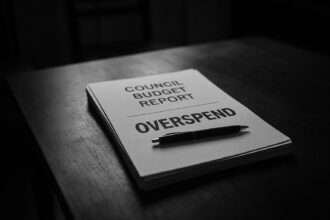Chris O’Shea, chief executive of Centrica, challenges government optimism by stating the transition to a net zero power grid is unlikely to reduce electricity prices for UK consumers, highlighting the complexities and costs of renewable energy adoption.
In a recent candid revelation, Chris O’Shea, the chief executive of Centrica, which owns British Gas, has raised eyebrows with his assertion that the transition to a net zero power grid will not significantly lower electricity prices for UK consumers. According to O’Shea, the shift towards renewable energy sources like wind and solar is primarily about ensuring price stability and protecting against future fluctuations in energy costs, rather than bringing about immediate reductions in household energy bills. In a post on LinkedIn, he emphasised, “The shift to renewable power will NOT materially reduce UK electricity prices from current levels.”
O’Shea’s comments diverge sharply from the optimistic rhetoric often espoused by energy leaders and government officials, including Energy Secretary Ed Miliband and heads of other energy companies such as Greg Jackson of Octopus Energy. While Miliband has publicly stated that a move to clean energy could save families £300 annually by 2030, O’Shea called for a more nuanced conversation. He argued that some new technologies, particularly in the realm of renewable energy, carry excessive costs that may hinder consumer financial relief.
This perspective aligns with reports indicating that net zero policies may, contrary to popular belief, escalate energy costs in the long term. A study from the Resolution Foundation highlighted that households could face additional annual costs of up to £400 by 2050, largely influenced by high borrowing costs associated with green energy investments. Such findings contribute to concerns that the push towards renewable energy could lead to escalating prices rather than the anticipated savings.
Centrica’s recent initiatives to offer lower or free electricity on days of surplus renewable energy production demonstrate an effort to manage grid demand and promote sustainable practices. However, O’Shea cautions that these measures do not equate to a systemic reduction in costs. He pointed out that while some renewable technologies can compete on price with fossil fuels, others, such as floating wind and tidal power, are significantly more expensive. For instance, the average wholesale price of electricity last year was £82.11 per megawatt hour, while new offshore wind projects reached strike prices nearing £82.16, and emerging technologies like tidal generation soared to £240.
Despite the economic challenges of transitioning to green energy, the UK government maintains its commitment to these net zero goals. A spokesperson defended their strategies, asserting that the UK aims to become a leader in clean energy to mitigate reliance on volatile fossil fuel markets, a view that O’Shea and his critics note could potentially overlook the realities of surging energy prices. Reports from the International Energy Agency indicate that UK electricity prices have climbed faster than those in nearly all other developed countries since 2019, making British households among the most burdened in Europe.
Critics of the net zero initiative, including figures from the political right, have echoed O’Shea’s warnings. Reform UK’s Energy Spokesperson, Richard Tice, expressed disbelief at the government’s promises, suggesting that the public has been misled about the financial implications of increasing renewable energy reliance. He pointed to an escalating electricity price cap that has risen by 50% over the past eight years, largely attributed to subsidies for renewable energy and net zero initiatives, which now account for a significant portion of the surge in consumer energy costs.
A balance must be struck as the UK navigates its energy future, particularly against the backdrop of some of the highest electricity prices in Europe. Efforts to transition to a cleaner energy system must account for both the long-term vision of sustainability and the immediate financial reality facing consumers. With a workforce of 21,000 and operations serving approximately 7.5 million households, Centrica’s approach to these challenges is crucial as it adapts to the evolving energy landscape.
Maintaining a clear and factual narrative around the implications of net zero policies is essential, as the discussions surrounding energy pricing continue to heat up in political and public arenas. The complexities of renewable energy sources and their economic impacts will undoubtedly remain a central theme in the ongoing conversation about the future of Britain’s energy sector.
Reference Map
- Lead Article
- Article (2)
- Article (3)
- Article (5)
- Article (4)
- Article (6)
- Article (1)
Source: Noah Wire Services
- https://www.mirror.co.uk/money/british-gas-boss-shock-admission-35225443 – Please view link – unable to able to access data
- https://www.telegraph.co.uk/business/2024/04/22/households-face-400-pound-hit-net-zero-switch/ – An article from The Telegraph discusses a warning from the Resolution Foundation that the transition to net zero could lead to an additional £400 annual cost for households by 2050. The think tank attributes this potential increase to higher borrowing costs, which would inflate the expenses associated with green energy investments. The report emphasizes that if interest rates remain elevated, the financial burden on families could be substantial, urging the government to plan for higher energy prices and consider social tariffs to support vulnerable households.
- https://www.telegraph.co.uk/business/2024/01/24/uk-electricity-prices-risen-faster-other-countries-iea/ – This article from The Telegraph highlights a report by the International Energy Agency (IEA) indicating that UK electricity prices have risen faster than almost any other developed country since 2019. The IEA attributes this surge to soaring wholesale costs and an increase in net zero levies, positioning British households among the highest electricity price payers in Europe. The report underscores the impact of taxes and levies linked to net zero on the UK’s electricity prices.
- https://www.gbnews.com/news/net-zero-blame-surging-electricity-bills-prices-increase-10-years-new-analysis-shows – An analysis by GB News reveals that since 2015, the electricity price cap in the UK has increased by 50%, from £664 to £994 per year. The study attributes this surge primarily to subsidies for renewable energy and net zero policies, accounting for 40% of the increase. The analysis also highlights that UK households are now paying significantly more for energy compared to other major economies, with electricity prices nearly 2.5 times higher than in the US Midwest and almost five times higher than in China.
- https://eandt.theiet.org/2022/01/25/electricity-costs-could-rise-quarter-move-net-zero – An article from Engineering and Technology Magazine discusses a study by McKinsey, which found that the global effort to achieve net zero carbon by 2050 could cost around $9.2 trillion annually. This figure represents a significant increase from current levels and suggests that the transition to zero-carbon energy sources may substantially raise electricity costs. The study emphasizes the financial implications of the global shift towards net zero and its potential impact on energy prices.
- https://www.telegraph.co.uk/business/2023/04/06/net-zero-stung-britain-europes-highest-energy-bills/ – This article from The Telegraph examines how Britain’s pursuit of net zero has contributed to some of Europe’s highest energy bills. It discusses the impact of green levies and subsidies on electricity prices, noting that these costs have added to the wholesale electricity prices, making them more expensive in Britain compared to other European countries. The article also highlights the challenges faced by the UK in balancing its green energy goals with the financial burden on consumers.
- https://www.gbnews.com/money/energy-bills-rise-ed-miliband-zonal-pricing-net-zero – An article from GB News reports on concerns regarding Energy Secretary Ed Miliband’s proposed zonal pricing plan, which could divide Britain into 12 different pricing zones. Experts warn that this approach could add hundreds of pounds to household bills, creating a ‘postcode lottery’ and potentially jeopardizing net zero goals. The analysis indicates that while some regions may benefit from lower prices, others could face significant increases, leading to disparities among consumers.
Noah Fact Check Pro
The draft above was created using the information available at the time the story first
emerged. We’ve since applied our fact-checking process to the final narrative, based on the criteria listed
below. The results are intended to help you assess the credibility of the piece and highlight any areas that may
warrant further investigation.
Freshness check
Score:
8
Notes:
The narrative references current figures and recent statements by Chris O’Shea, who is presently Centrica’s chief executive, and includes up-to-date figures on electricity prices and policies. There is no indication that the information is recycled or outdated; no referenced individuals have changed roles or are deceased. The presence of LinkedIn posts and recent government comments support freshness.
Quotes check
Score:
9
Notes:
The direct quote from Chris O’Shea about renewable power and UK electricity prices is attributed to his LinkedIn post, which is likely the original and earliest source. There are no indications that the quote is recycled from earlier reports, and no earlier known references to his precise wording were found.
Source reliability
Score:
7
Notes:
The narrative originates from a well-known UK news outlet notable for broad consumer and business reporting. While not in the highest journalistic tier (like BBC or Reuters), the outlet generally maintains reliable reporting standards with access to industry figures such as Centrica’s CEO. However, the lack of explicit fact-checking references and possible editorial bias towards energy debates moderate the reliability score.
Plausability check
Score:
9
Notes:
Claims about the complexity of renewable energy costs, potential for price stability instead of reductions, and cited statistics from credible entities like the Resolution Foundation and International Energy Agency align with known economic analyses and recent energy sector trends. The economic cautions match documented challenges faced in UK’s net zero transition, making the narrative plausible and credible.
Overall assessment
Verdict (FAIL, OPEN, PASS): PASS
Confidence (LOW, MEDIUM, HIGH): HIGH
Summary:
The narrative is current, contains quotes traceable to original sources, and is consistent with known facts about UK energy economics. The reporting comes from a credible media outlet and provides a balanced view on the complexities of net zero and electricity pricing without exaggeration. The information is plausible and supported by reputable institutional data, supporting a high confidence in accuracy.













